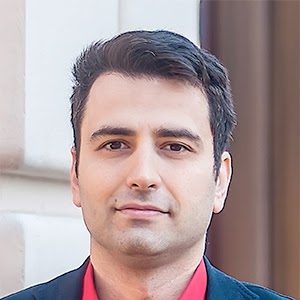Thursday, 29 July 2021
All times are CEST
Pilot project presentations: URBID – grassroots urban transformation through design
Speakers meeting link: https://bit.ly/36uVRwF | Meeting attendants: Facebook live at https://www.facebook.com/designscapesproject/
- 17:30-17:45 Welcome and introduction
(Mariela Petrova, RSO) - 17:45-18:15 Presentation of the pilot project
(Yane Vasilev Frenski) - 18:15-18:30 Q&A and Discussion (*)
- 18:30 End
(*) Other winners of the Designscapes call with similar thematic orientation will be invited to contribute
Our speakers

Mariela Petrova has 20+ years of experience as a head of an association of local authorities, manager and coordinator of national and EU funded projects and initiatives related to creative and cultural industries, crafts, SMEs innovations, youth entrepreneurship, urban regeneration, social economy and good governance.

Yane Frenski is an international consultant, who’s been working for the past 11 years for various United Nations Offices around the world, providing expertise on technology, innovation and entrepreneurship for sustainable development. He is also a co-founder of the social enterprise URBID, which provides a grassroots approach for sustainable management and regeneration of urban spaces.
URBID has successfully completed the prototype phase of launching its platform for grassroots urban transformation through extensive use of design tools.
The city chosen for the prototype was the capital of Bulgaria – Sofia, where urban artifacts are often in critical condition. Due to limited public funds in the country, the available resources are preferentially allocated towards large infrastructure projects like roads and highways. As a consequence, various urban spaces and objects (bus shelters, underways, small squares, etc.) are abandoned for decades. This leads not only to poorer conditions of the environment, but also affects issues like safety and quality of life. Moreover, there’s a lack of civic agency and initiative in shaping public space.
For that reason, URBID decided to address all of those issues with a platform that aims to empower citizens through enabling initiative and streamlining decision-making in the transformation of derelict urban sites, and introduce alternative funding sources like private companies, advertising and crowdfunding, while also testing a process of sustainable reuse of resources at urban scale.
Encouraging a creative mix of visual arts, product design and outdoor advertising, the platform enables citizens to nominate spaces in their city in need of transformation, and creatives are invited to propose a solution for revamping them, while our team provides the support in terms of architectural and legal framework that allows for carrying out those interventions. The implementations of the interventions are then funded by the local community (crowdfunding) or local companies that have adopted the “giving back” mindset. The full cycle of the process is empowered by an in-house developed web platform and an app (https://urbid.org), which take care of the nominations, voting, ideas submissions, and even the crowdfunding. Thus, the process is made fully transparent, and allows for better scalability and transferability.
By September 2020 (during the pre-prototype and the prototype phases), URBID managed to complete 4 interventions in Sofia following the above-mentioned process (2 of them funded completely by external sources). 3 other interventions (all initiated by the local communities) are under way and are supposed to be completed by the end of next month. The successful interventions in Sofia sparked the interest of citizens in other cities and towns. An intervention in the neighbouring Novi Iskar is in the process, and is fully funded by members of the local community. These results, that by far exceeded our expectations during the times of crisis, are a great proof that the innovative process we developed and improved during the prototype phase, works very well in the given context. To further encourage participation and boost fundraising potential, some initial steps for gamification have been done: the team is now awarding active community members with three types of T-shirts that represent three levels (ranks) of contributions to the project (“on the ground volunteer”, designer, financial contributor).
URBID worked with the most prominent local designer groups and architects from day one. This allowed them to incorporate their views and experience at the earliest stages of the project development. Those designers were involved in the ideation process of the first interventions.
Additionally, in order to facilitate the process of implementing the interventions, our team developed strong relations with the local authorities. We work together with the Municipality of Sofia, as well as the authorities of several central districts like Sredets and Lozenets.
Given these results, we can say that we managed to tick all the boxes of the goals set at the beginning of the project: Creating civic agency at urban scale by involving citizens in the decision making process; providing scene and funding for local designers and architects; and streamlining the process with the local authorities. In order to achieve it, we employed various design methodologies and tools: co-creation workshops, empathy maps and personas, cultural probes, stakeholder mappings, business canvas models, etc. While at the same time, the whole problem solving and innovation process followed a 5-step iterative design thinking framework (empathize, define, ideate, prototype, test).
